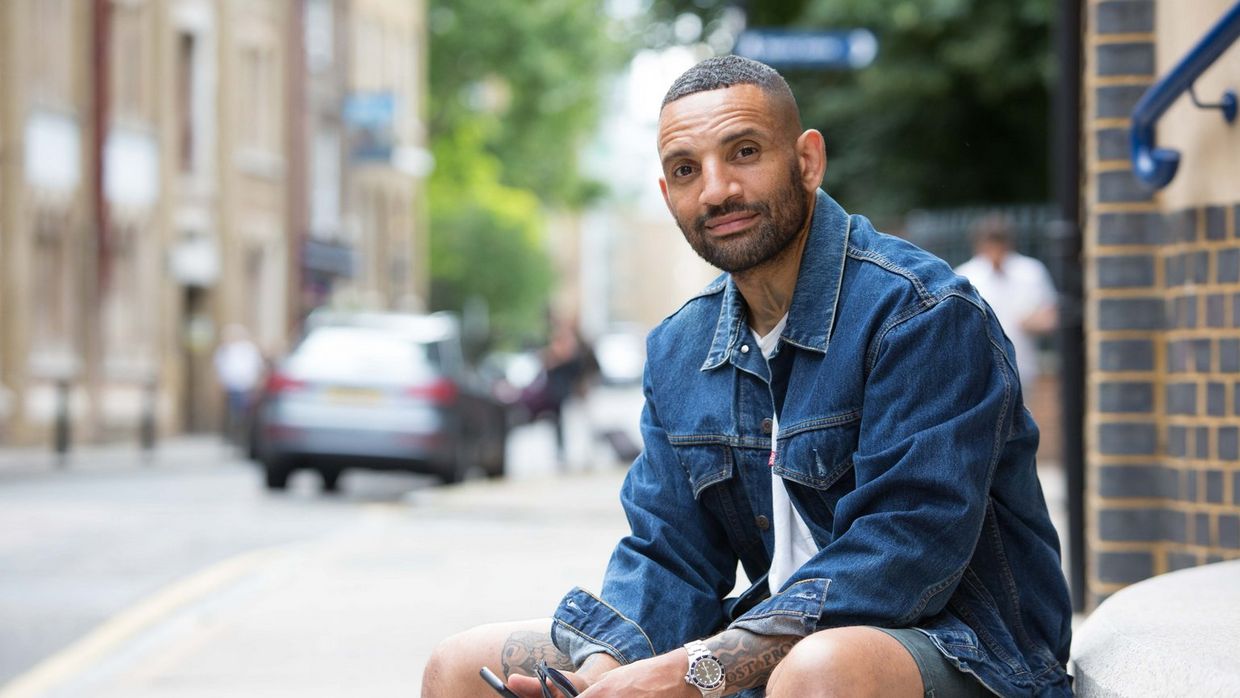WHY WE NEED TO TALK ABOUT TOXIC MASCULINITY
Our society reinforces the worst notions of what it is to be a man – but one ex-MMA fighter is on a mission to fight back

Mason Roberts, 39, is an ex-MMA fighter turned life coach
specialising in overcoming toxic masculinity. It is, it is fair to say, an unusual career
change. But then Roberts has had an unusual life. He grew up in London and describes his
formative years, as:"loads of crime, loads of violence, alcohol, drugs, all that stuff; no space
for emotion; no space for weakness”. MMA fighting was the outlet for all his pent-up feelings.
But then, an injury changed his life. He had to quit the sport. Initially, he dealt with it
badly:“It seemed to have been taken away from me. I had all this energy and aggression and anger
that I'd been hard done by. I'd been forced to leave. It took seeing a therapist for me to be
able to see there was more than just fighting in life”.
After tackling his own issues
with toxic masculinity, he set about helping others. He now works predominantly with men,
helping them to "reset and rebuild" themselves. Clients often come to him with anger issues,
stress, or anxiety and through a series of one-on-one sessions he helps them to expose their
vulnerable side and get to grips with deep-seated issues – often using his own experiences as an
example. Here, as a part of our Men’s Health Awareness series, Orlebar Brown spoke to him about
the dangers of toxic masculinity – and how we can tackle it in 2020.

What do we mean when we talk about toxic masculinity?
I’ll give you an example. Will Smith cried openly on TV when the affair his wife had came out. Now, he got quite a lot of abuse for that. People were telling him to “get over it.” And that he shouldn't be crying. That is toxic masculinity. It’s a dated view of the expectations of what it is to be a man. Typical examples are these ideas like “men don't cry”, or “men need to provide”. It’s unrealistic and unhealthy.
How does toxic masculinity manifest itself?
The number one effect is anger. When you don't feel like you've got an outlet to be yourself that ends up as anger; you find yourself being triggered by the smallest of things. An example I like to use, is when people go to work in the morning. They are on a packed train and something small happens and they lose their temper. Had they been happier in other areas of life, that same thing wouldn't bother them. If they woke up and everything was fine, they had a coffee, breakfast, they've got a good partner, they got a raise at work, and then got on the train. It wouldn't bother them so much; they wouldn't be bothered by the rush hour. Which indicates to me that there's always an underlying thing that is triggering them. You know, people get triggered by smaller things on one day that they wouldn't on another, if that makes sense. When men hold onto these things that we're unhappy about, and have no outlet for them, then they tend to show it in a negative way:a short temper, going out lots, drinking heavily or using drugs.

What is the effect of this?
I’ve got friends that have taken their own lives. I think it’s a lot about feeling lonely. Not being able to talk about issues effecting you. I think when you subscribe to this old-fashioned idea of how a man should be, and if you feel that you're not living up to that expectation, well, you feel less of a man. You want to talk about it because you feel alone – but it’s hard when you have this view of what you should be, and few around you to speak to.
As a mindset coach, what techniques do you use to counter this type of masculinity?
My main goal is to allow people to look forward. Being forward-focused is how we all should be. Because when we start dwelling on the past that is when problems start. In the sessions I run, we speak about what we want. And we question whether what we initially think we want actually fits with our values. And then we start setting goals, breaking it down to milestones. And we consider things like being accountable and also ways to express ourselves. It is so important to be able to say honestly what we want, what we fear and what excites us. It helps in every part of your life.
What piece of advice would you give someone who is trying to improve their mental health?
You have to show your vulnerable side. Openly speaking about things. There's strength in being able to talk openly about stuff. I was a professional fighter and I have been in this very alpha-male space but by being open, I found people responded well. So, in terms of being able to get through this, I'd say be the first to open up if you can.
Reviews
We would love to hear from you.


